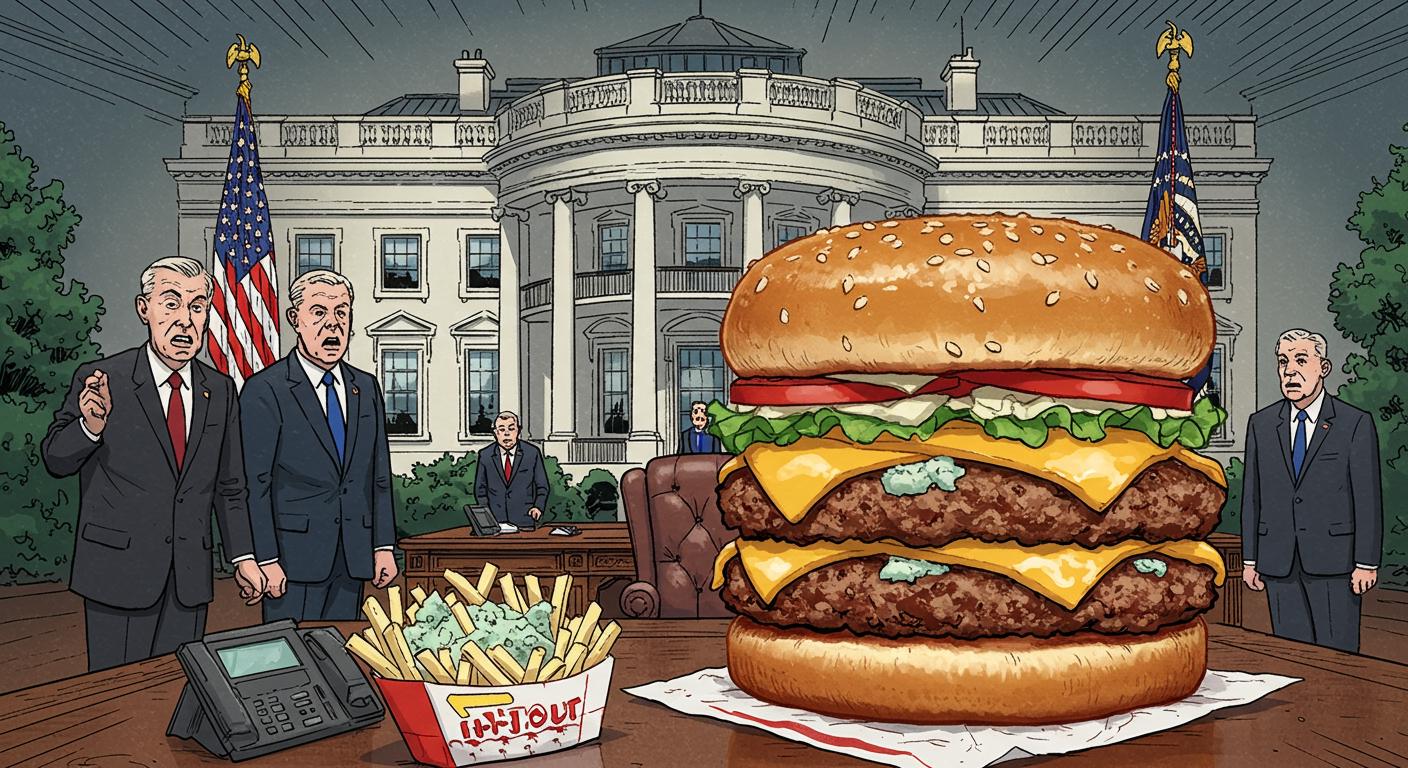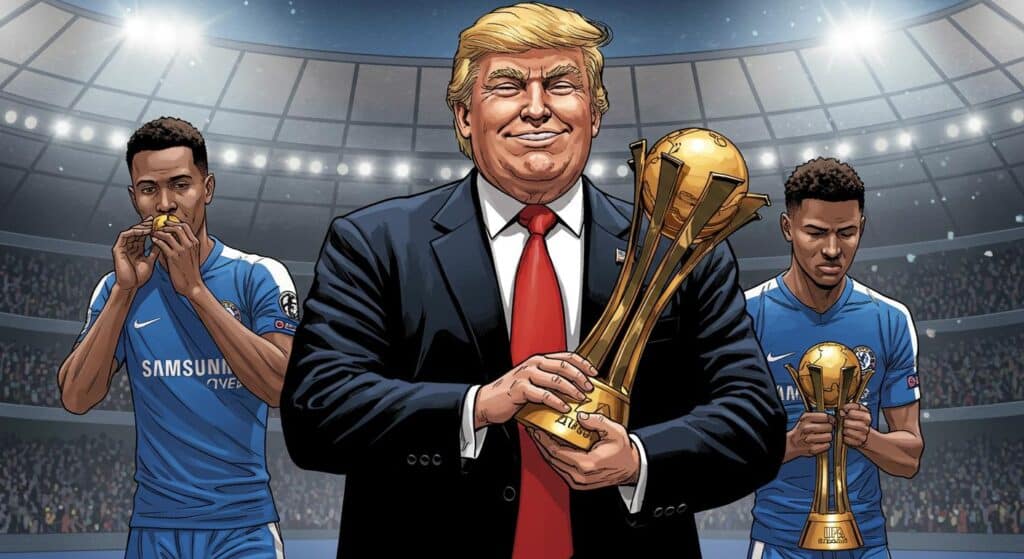There’s nothing quite like the annual parade of April Fools’ pranks—some clever, some groan-worthy, and most of them happily confined to group chats and water cooler conversations. But every so often, a practical joke slips its digital leash and lands somewhere it absolutely shouldn’t. This year’s standout accidental recipient? The White House, which appears to have missed the memo on checking both social media handles and the calendar.
Mistaken Identities and Meat Fats
As highlighted by The Independent, the White House issued a press release on Monday touting changes embraced by the food industry in line with President Trump’s “Make America Healthy Again” initiative. One detail stood out—an official claim that the Californian burger institution In-N-Out had transitioned its fries to “100% beef tallow.” The hitch, of course, was that this “news” originated not from the company itself, but from a fan parody account that had posted it on April 1, alongside an “April Fools” GIF not long after.
The restaurant’s Chief Operating Officer, quoted in The Independent’s coverage, swiftly clarified the situation: “Information was recently published in error stating that In-N-Out Burger has transitioned to beef tallow for cooking French fries. We continue to work on an upgrade to our current sunflower oil, however we have not yet made a change.” Meanwhile, the White House quietly scrubbed the reference from its website, though the original claim lingered in emails sent to reporters.
The Anatomy of a Viral Prank (and a Federal Fumble)
Tracing the rumor’s roots, Hoodline documents how social media made short work of blending fact and fiction. The April Fools’ tweet from @innoutburger_—a clearly marked fan account, rather than anything officially affiliated—declared the big switch to beef tallow with a faux gravitas that likely primed it for viral spread, especially in the context of ongoing debates about seed oils and “healthier” frying fats.
The story grew legs, as Hoodline further reports, by tapping directly into the “Make America Healthy Again” narrative. Federal moves to phase out synthetic dyes, and vocal support from Health and Human Services Secretary Robert F. Kennedy Jr. for beef tallow over seed oils, set the stage for people eager to see their ideological preferences reflected in potato preparation. The confusion was only compounded by existing calls—real and imagined—for iconic chains to make similar ingredient changes.
Hoodline groups together several recent actual developments: In-N-Out removed artificial dyes from some drinks and switched to real-sugar ketchup, but they very much continue to cook fries in sunflower oil, just as they have since the 1940s. Meanwhile, competitor Steak ‘n Shake did make the tallow move, a real-life trend that made the prank all the more plausible.
When Sara Libby, politics editor for the San Francisco Chronicle, flagged the White House’s blunder on X, it became clear how swiftly a single parody tweet could leap from social media chaos to federal press release. A quick skim of the handle or a glance at the calendar might have prevented the mix-up—is this a new occupational hazard in the age of parody accounts and unending news cycles?
The Health Claims and the Great Fry Oil Debate
This whole episode is folded neatly into the larger, somewhat greasy saga of America’s battle over food additives and frying fats. According to Hoodline’s report, Kennedy’s “Make America Healthy Again” campaign goes so far as to feature T-shirts declaring “make frying oil tallow again.” The FDA’s intent to phase out petroleum-derived synthetic dyes by 2026 prompted ingredient shuffles at restaurants like In-N-Out, but the actual science around seed oils versus animal fats is more tangled than most Twitter debates can capture.
Nutrition experts—quoted both by Hoodline and in a wider context by TIME Magazine and other outlets—remain unconvinced that trading sunflower oil for beef tallow will spark a dietary revolution. As Stanford’s Christopher Gardner is cited saying, the debate over frying fat might just be a distraction from the more pressing issue: maybe, just maybe, we should be eating fewer French fries in general. The allure of healthier fast food is strong, but research summarized by Hoodline points out that saturated fats, like those found in beef tallow, have their own well-established risks.
Yahoo News, in a summary of this year’s fry oil follies, also reiterates that public confusion around In-N-Out’s cooking methods has flared before, in part thanks to persistent copycat and parody accounts. As previously reported by Hoodline, even Elon Musk weighed in on the fake account in December 2024, which only led to more online speculation and customer petitions. The result? A powerful demonstration of how quickly the internet can scramble fact and fiction—sometimes with the federal government playing, unwittingly, along.
Official Edicts, Fan Fiction, and French Fries
The press release debacle might prompt a rueful chuckle, but it also serves as a gentle warning about the pitfalls of digital shortcuts. If “check the date” and “check the source” aren’t already taped to computer monitors in the West Wing, perhaps it’s time to make some space. Will the next viral prank to slip into an official address involve McFlurrys and foreign policy? Can we expect to see Ronald McDonald in a future Cabinet?
As the dust settles, it’s hard not to marvel at the sheer velocity and reach of food-related misinformation when it rides in on the back of culture wars, nostalgia, and the latest health trend. What other April Fools’ gambits might be circling, waiting for their own accidental moment in the federal limelight? And with so much swirling around—parody accounts, regulatory change, actual research, and deeply held French fry loyalties—it seems like the least anyone can do is pause for a second look at the headlines…and the calendar.







